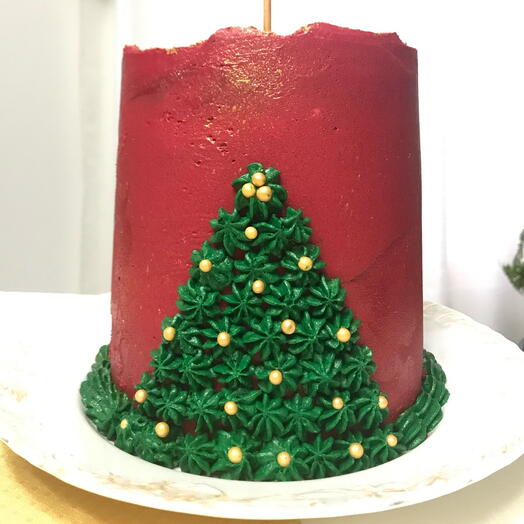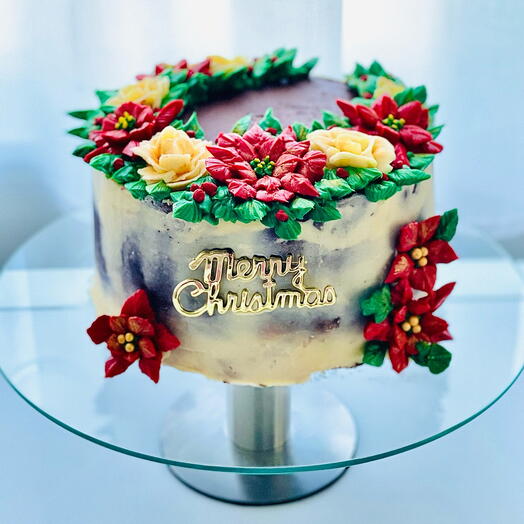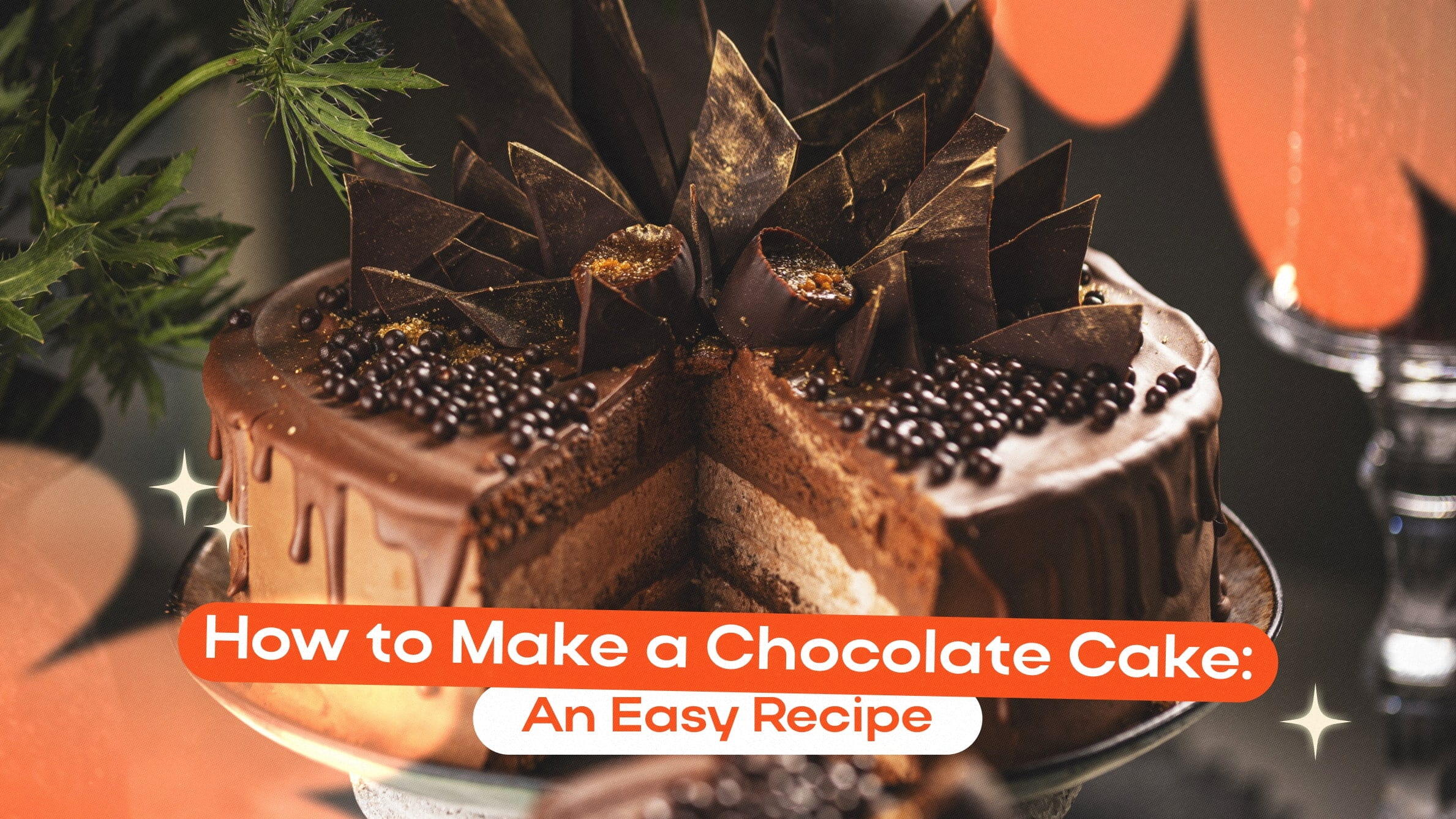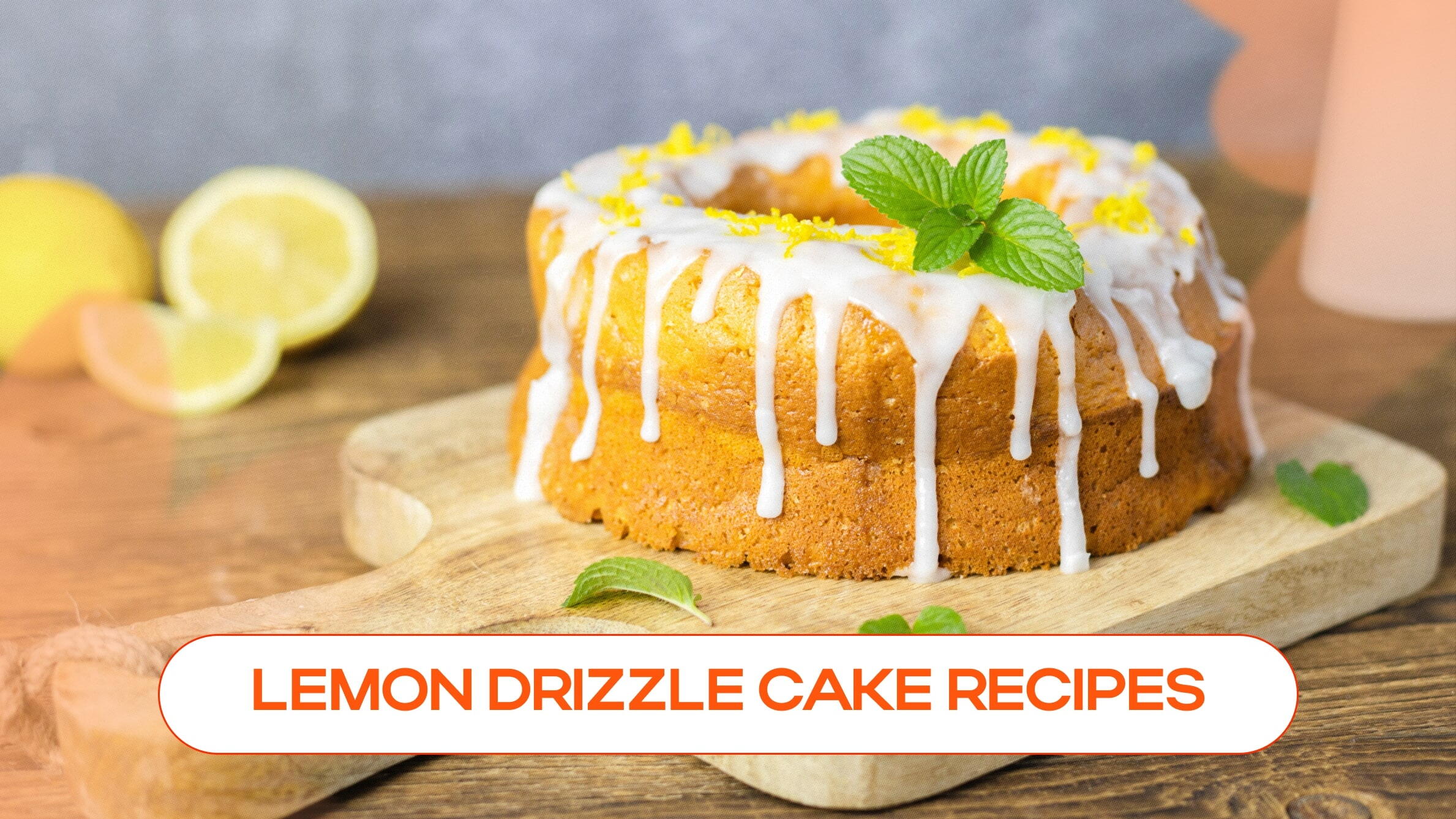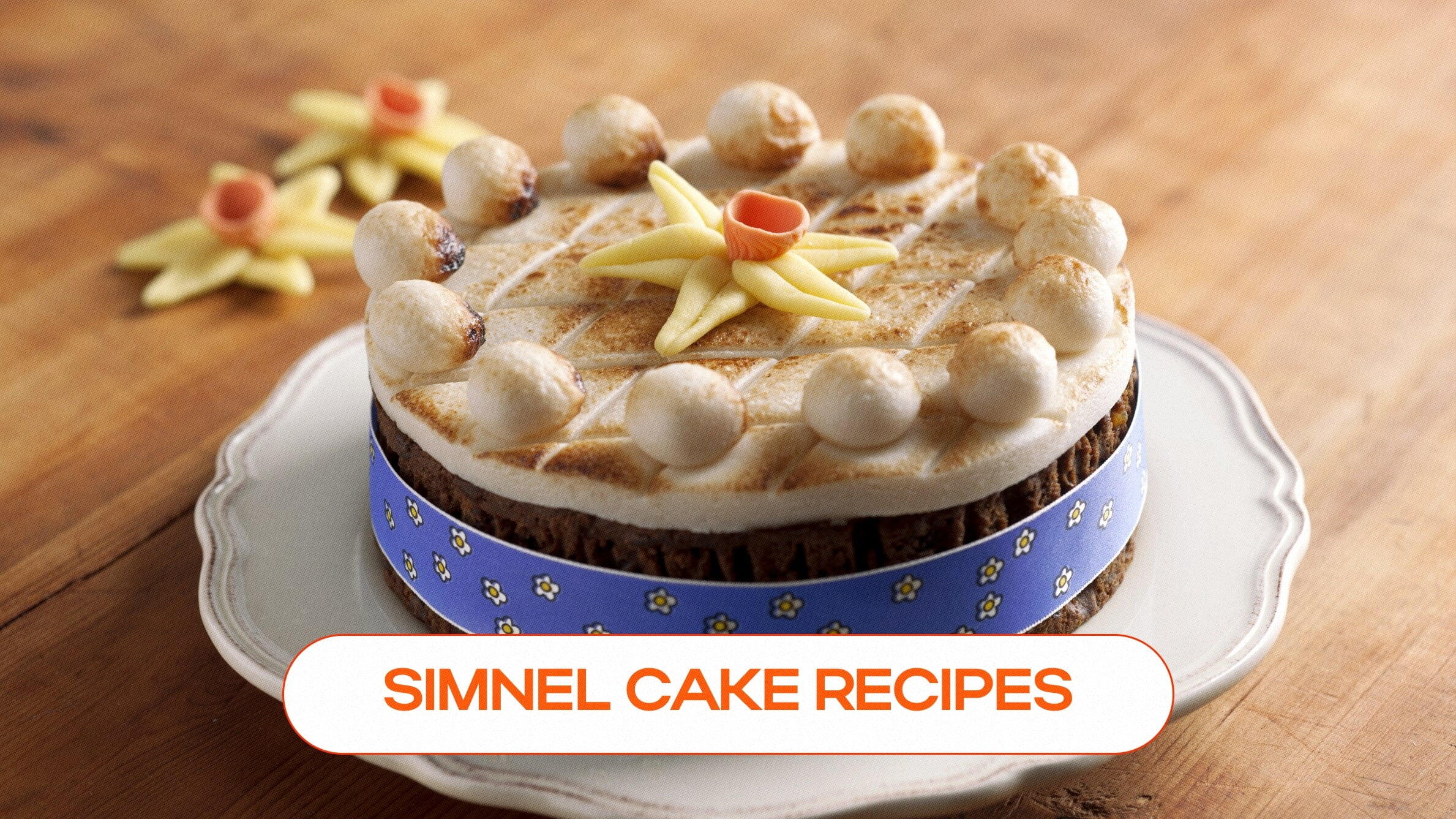
The origins of the Christmas cake trace back to mediaeval times, when dried fruits in combination with spices were utilised to make fruitcakes to mark special events. While the classic Christmas cake recipe differs from one region to another, it still remains one of the most popular choices worldwide. To enhance its flavour and extend its shelf life, the dessert might be infused with alcohol, such as brandy or rum.
Contemporary adaptations of the Christmas cake recipe have lost most of their complexities, allowing everyone to create this delectable dessert. Regardless of whether it's a decadent fruit-laden cake or a lighter sponge cake, the Christmas cake endures as a cherished holiday tradition, often adorned with sugary icing, whimsical marzipan, and festive designs to celebrate the festive spirit of Christmas. Let’s take a look at the best Christmas cake recipes to try out this year!

When should I start my Christmas cake

Ideally, a traditional Christmas cake is prepared approximately a month prior to Christmas, though some might opt for an even earlier start. This time frame ensures the cake has sufficient time to mature and enhance its flavours before the festive season commences. Moreover, giving yourself some extra time minimises the pressure of last-minute arrangements during the hectic holiday season. Therefore, the optimal period falls a few weeks to a couple of months before the celebration.
How many calories each serving contains
The conventional dessert typically carries a substantial calorie load, with an average serving containing approximately 350-400 calories. This is attributed to ‘heavy’ ingredients like butter, eggs, and dried fruits. In contrast, a vegan Christmas cake frequently boasts a lower calorie count per serving, averaging about 250-300 calories due to ‘healthier’ substitutes.
When it comes to petite Christmas cakes, the calorie content may fluctuate based on specific ingredients and portion dimensions. Regardless, opting for a smaller serving size generally results in a reduced calorie count, typically ranging from 200-250 calories per serving.
Traditional Christmas cake recipe
The Christmas cake recipe in the UK is a timeless and delightful indulgence ideal for the holiday season.
If seeking a traditional recipe for making a lasting impression on your guests, look no further than this straightforward Christmas cake recipe, a gem that has been handed down through generations, consistently bringing joy without fail.
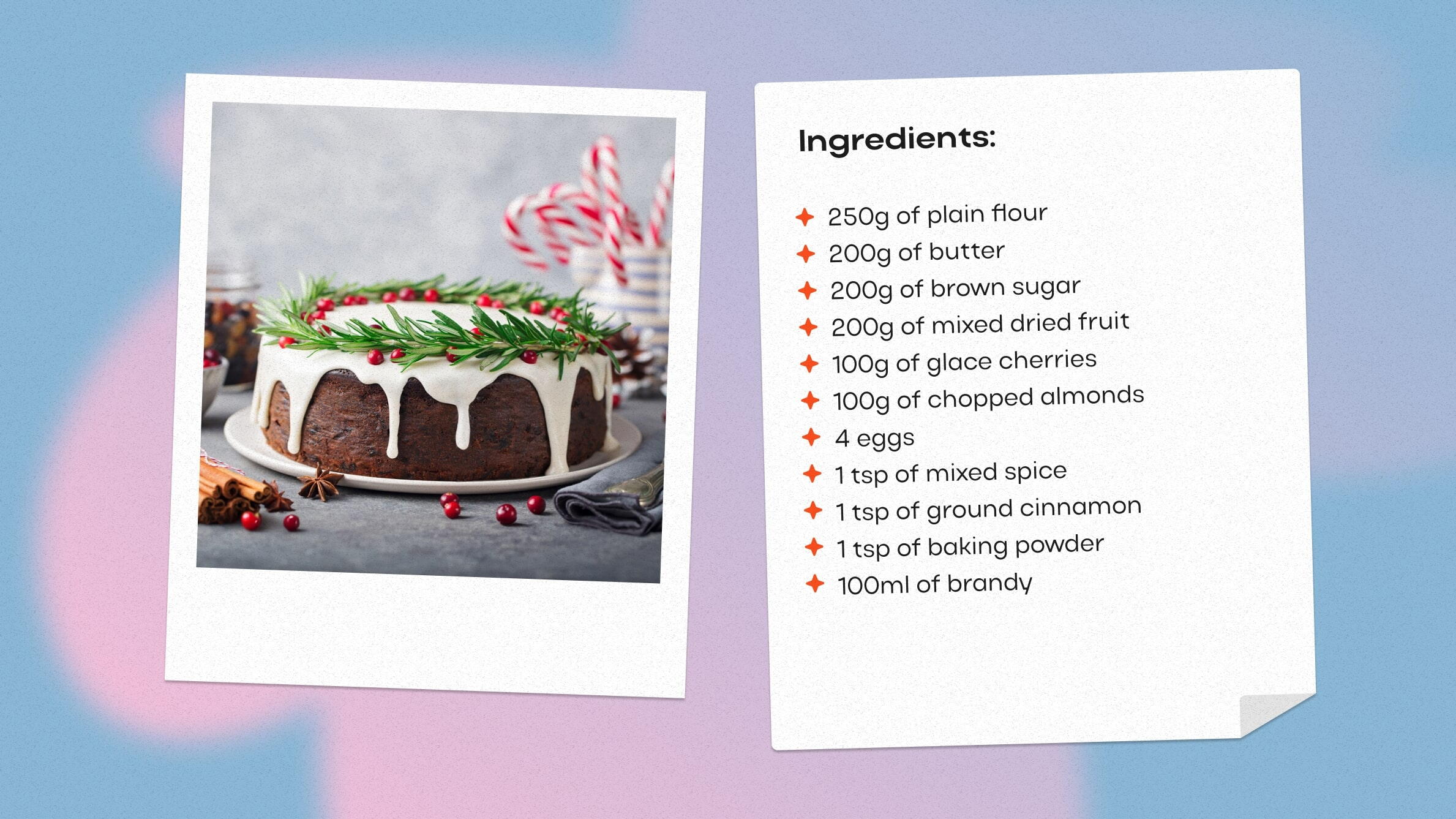
The method of preparing and cooking a cake
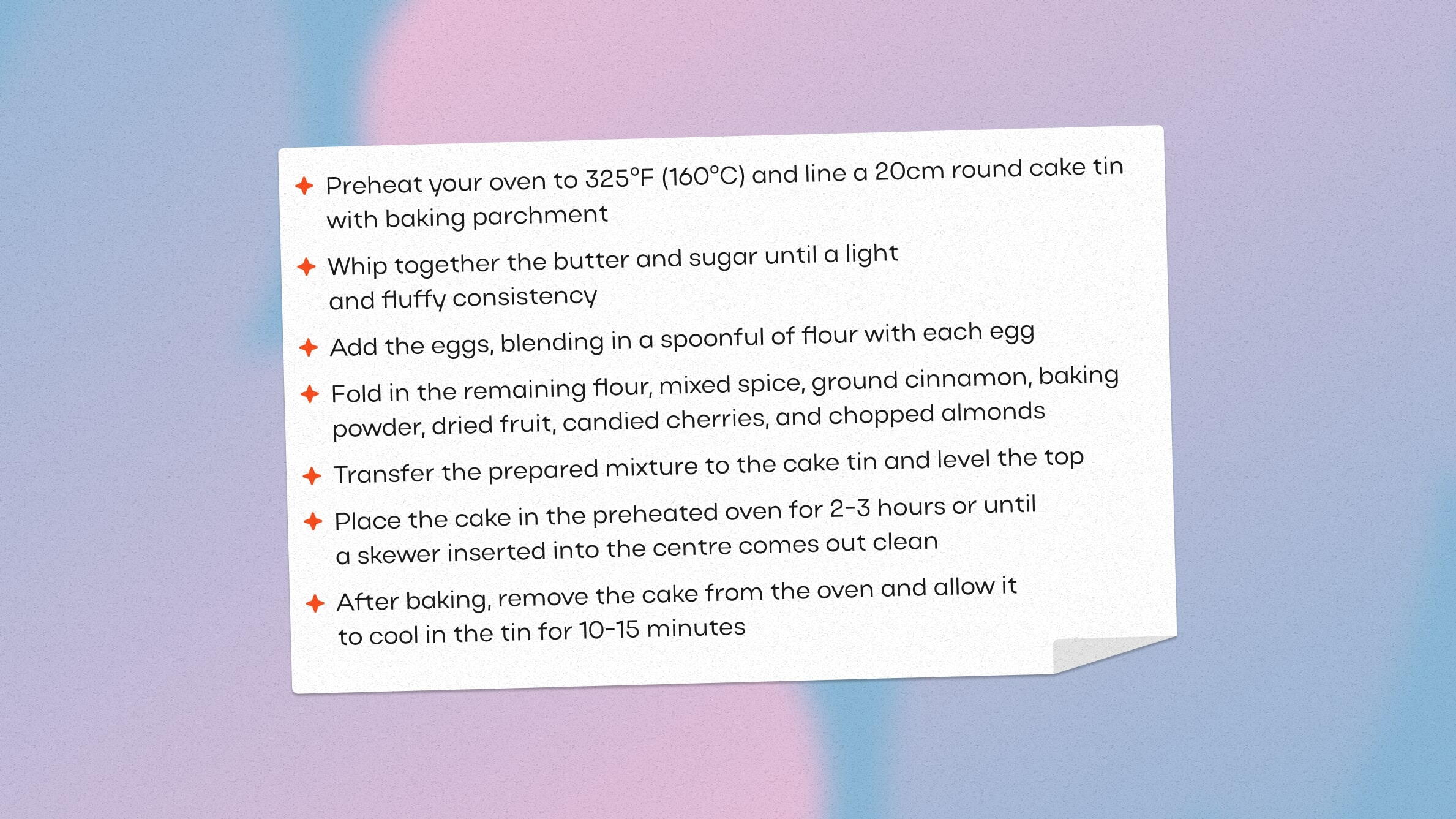
For a finishing touch, try moistening the cake with a couple of tablespoons of brandy every few days.

Small Christmas cake recipe
With its classic flavours and delightful aroma, this small Christmas cake is sure to bring joy and cheer to any holiday celebration.
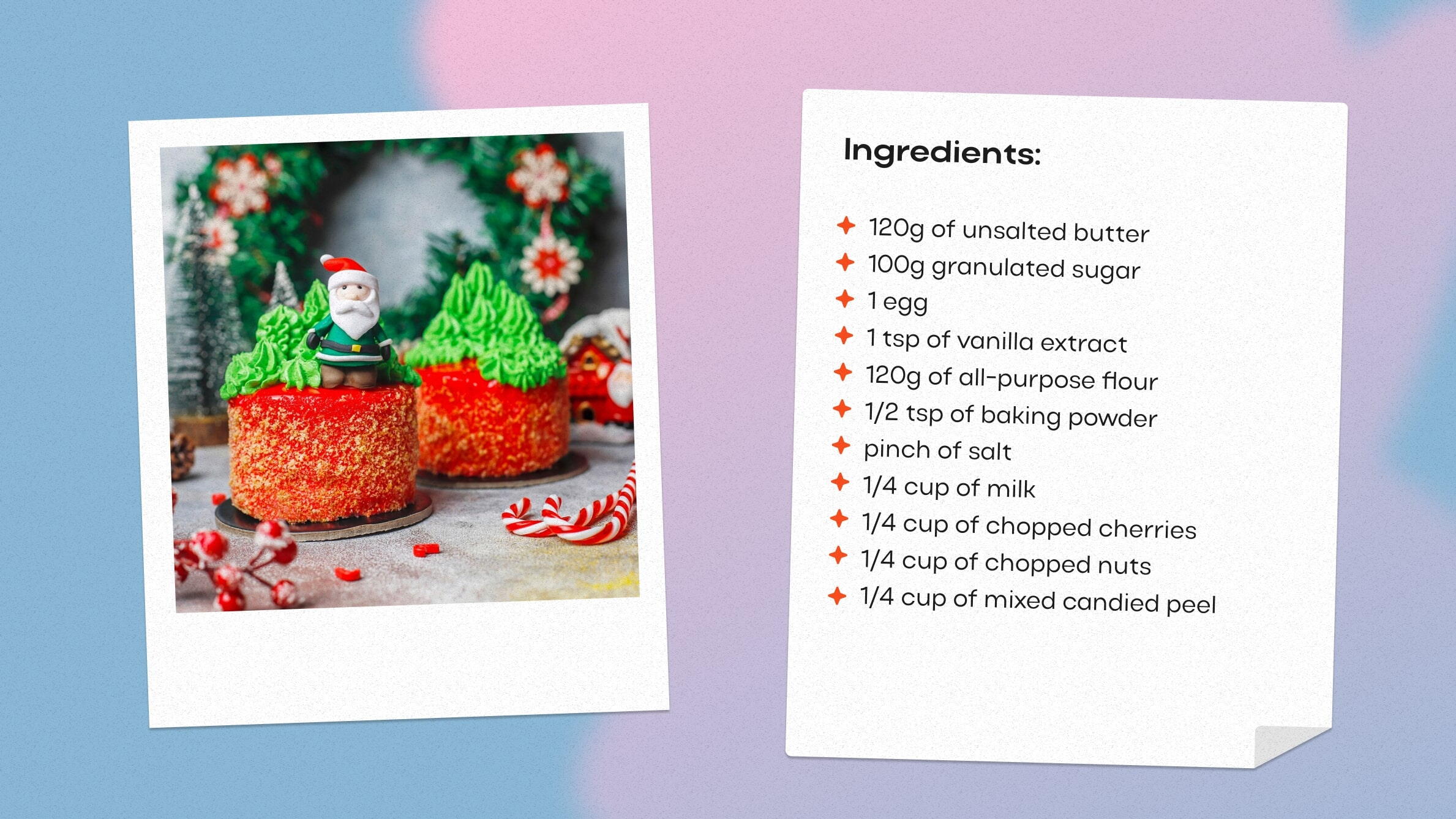
The method of preparing and cooking a cake
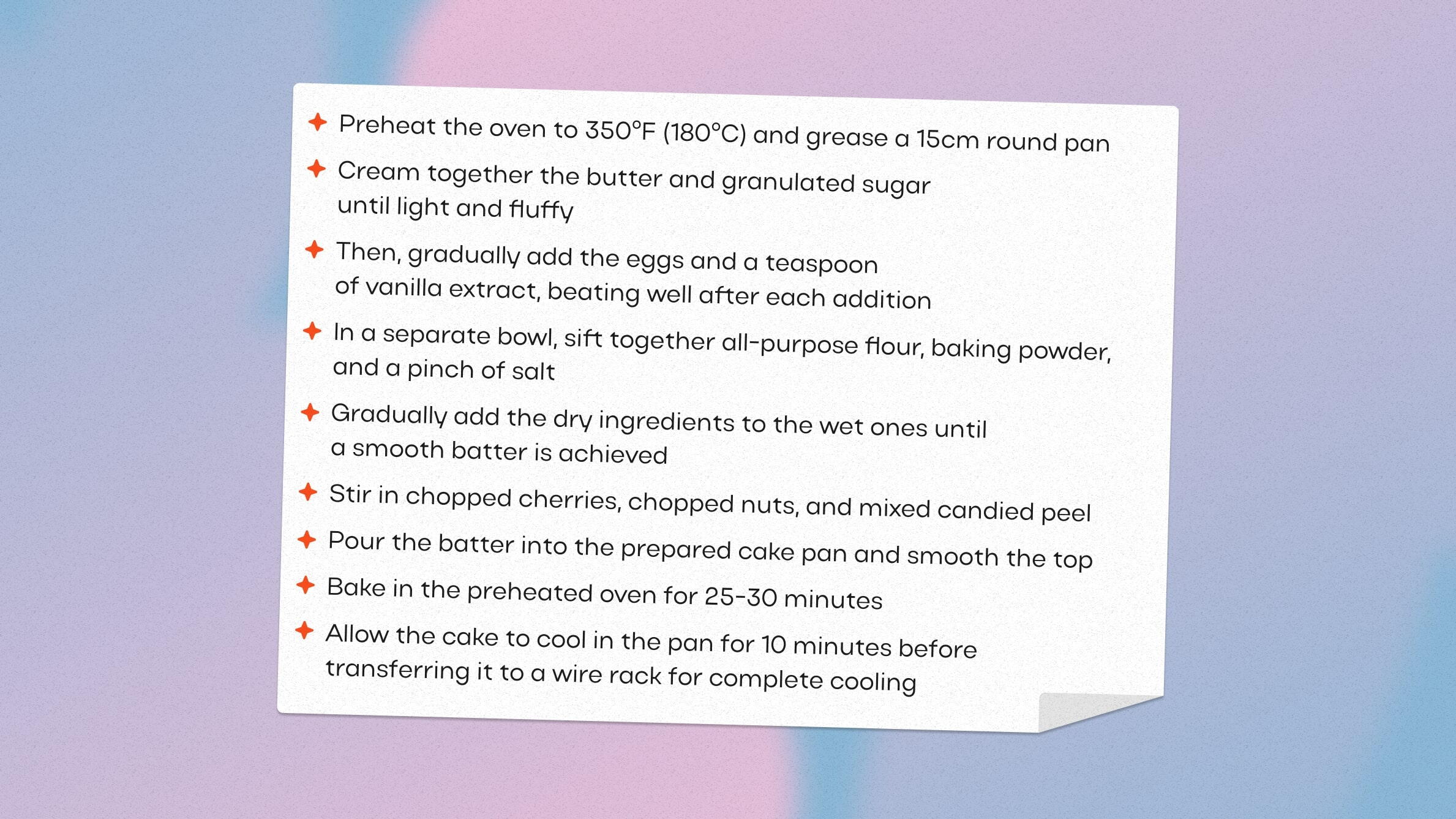
Once cooled, you can decorate the cake with a simple glaze or a dusting of powdered sugar and top it with a festive garnish of your choice.
Vegan Christmas cake recipe
Not only is this vegan Christmas cake incredibly tasty, but it is also cruelty-free, making it an excellent choice for enhancing your holiday dessert spread.
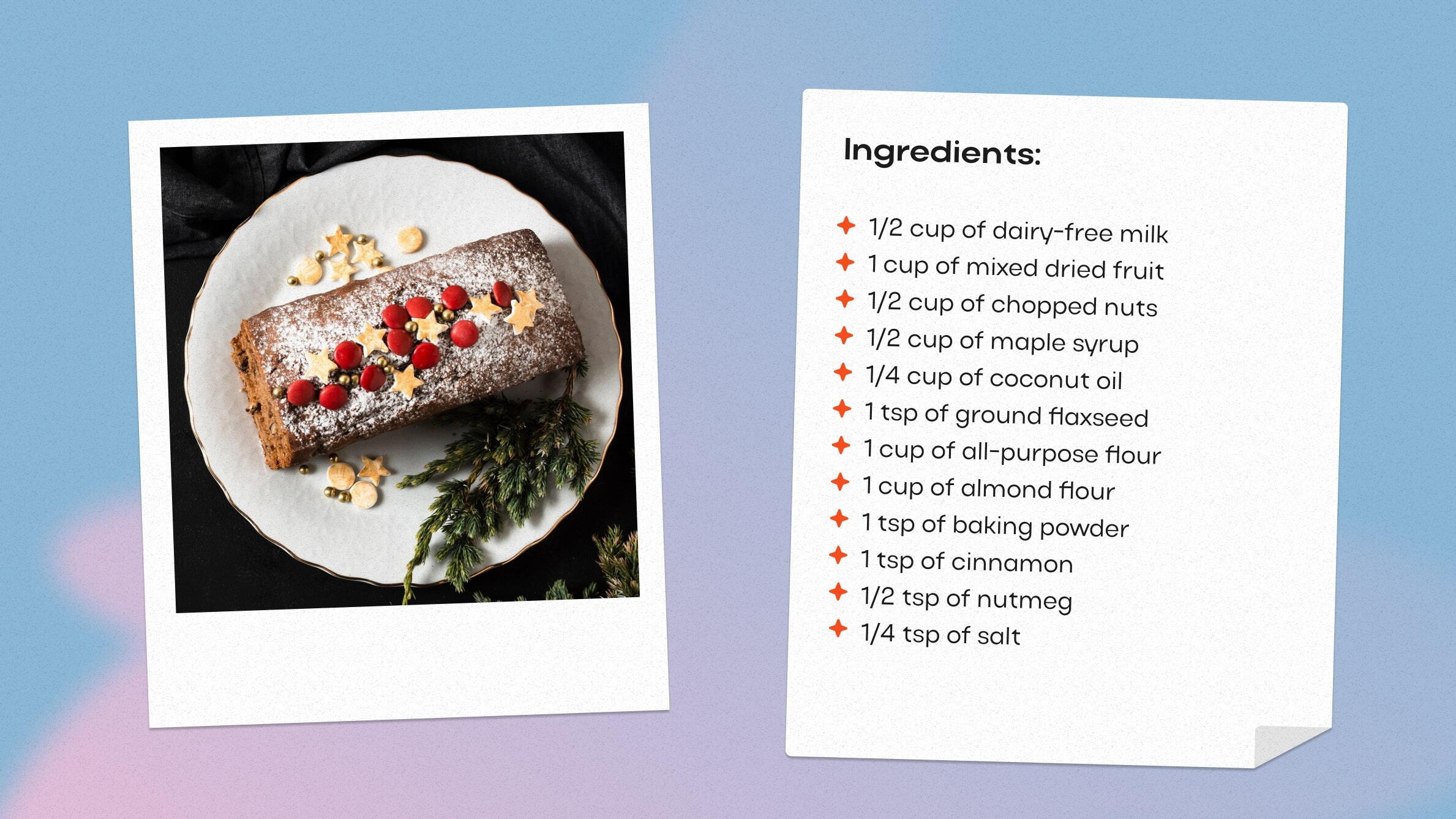
The method of preparing and cooking a cake
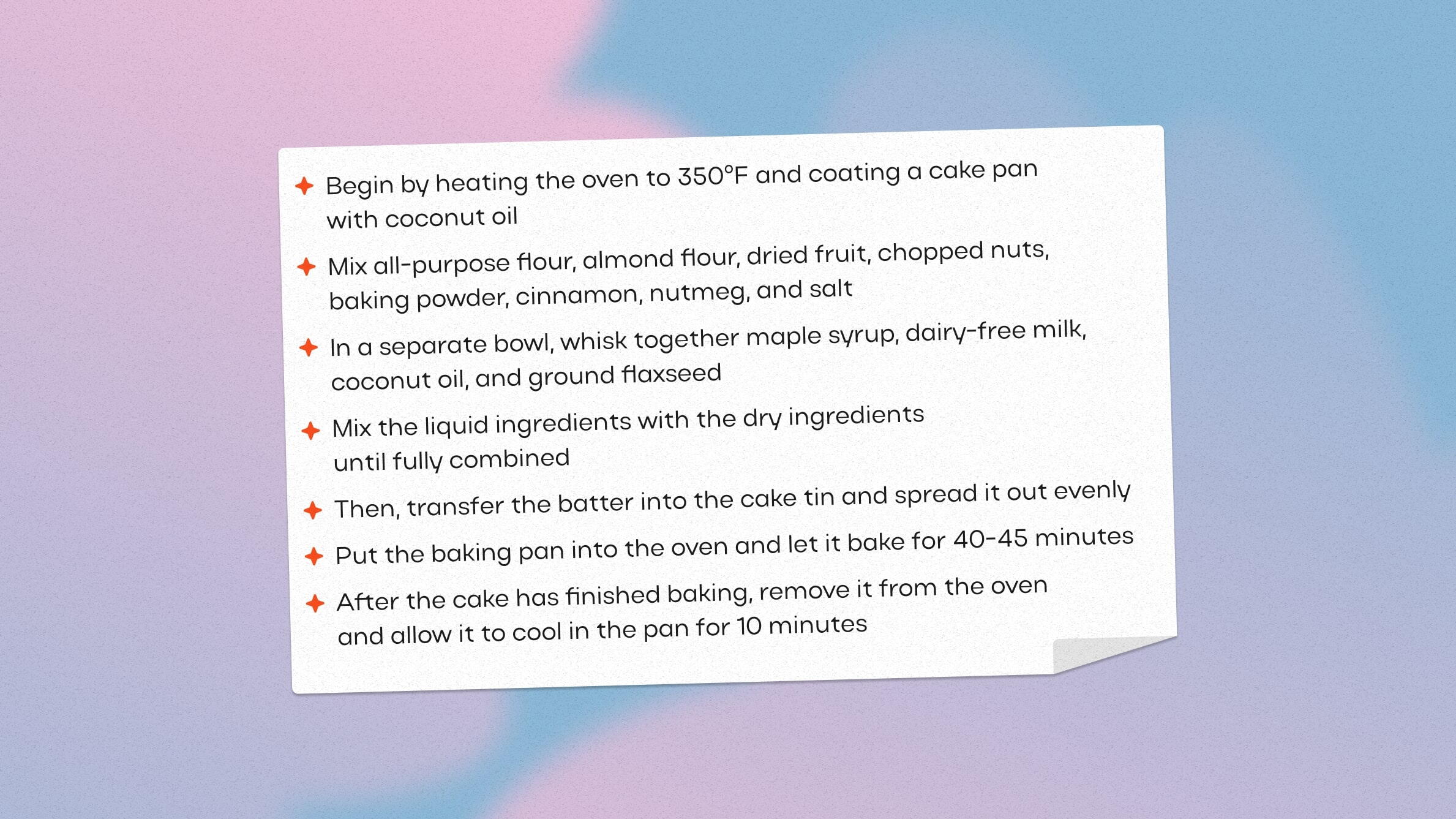
Once your ingredients are ready, it’s time for the preparation process. Don’t forget to thoroughly mix the ingredients and spread the filling evenly across the batter.
Christmas cake icing recipes
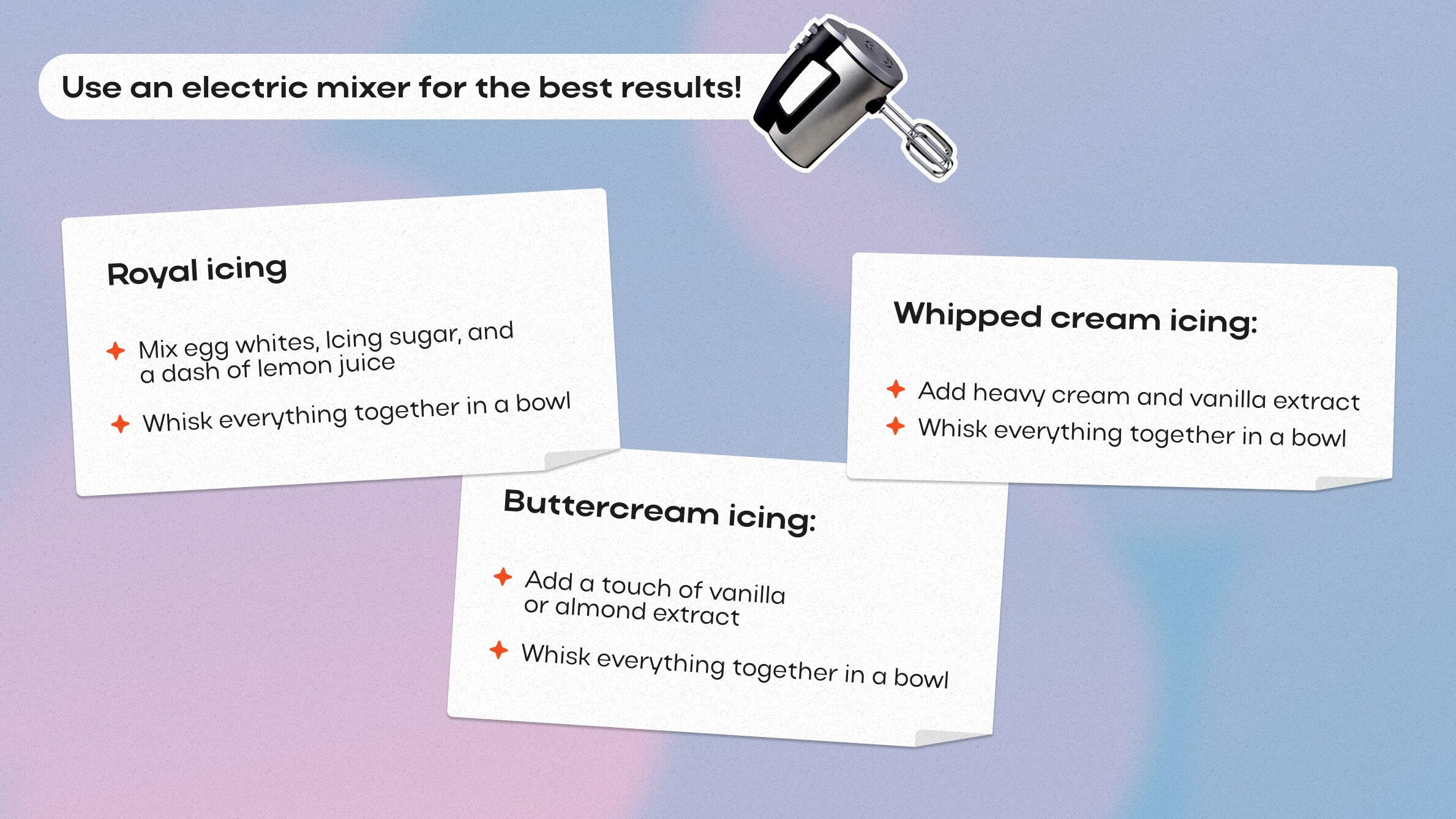
The secret to a delectable Christmas cake lies in the impeccable icing, and there is a myriad of recipes to select from. Traditional royal icing provides the cake with a splendid, sleek surface and allows for intricate designs to infuse a festive flair. If you're in the mood for something slightly unconventional, consider a luxurious and velvety buttercream icing. For those inclined toward a lighter and fluffier topping, the whipped cream icing stands out as an excellent option.
Regardless of the icing chosen for your Christmas cake, ensure it has ample time to set and thoroughly dry before serving, as this step preserves the cake's moisture and maintains its visual appeal.
What does the Christmas cake go well with?
The Christmas cake is a decadent and lavish dessert that complements a variety of side dishes. Traditionally, a serving of Christmas cake is presented with a dollop of softly whipped cream or a portion of sharp cheddar cheese, which serve as elements that cut through the richness of the cake. Alternatively, a steaming cup of spiced mulled wine or a warm mug of freshly brewed coffee also stands out as popular choices. Finally, for a more indulgent pairing, a scoop of velvety vanilla ice cream or a drizzle of luscious caramel sauce serves as delightful enhancements that elevate the cake's flavours.
Christmas Cake Decoration Ideas
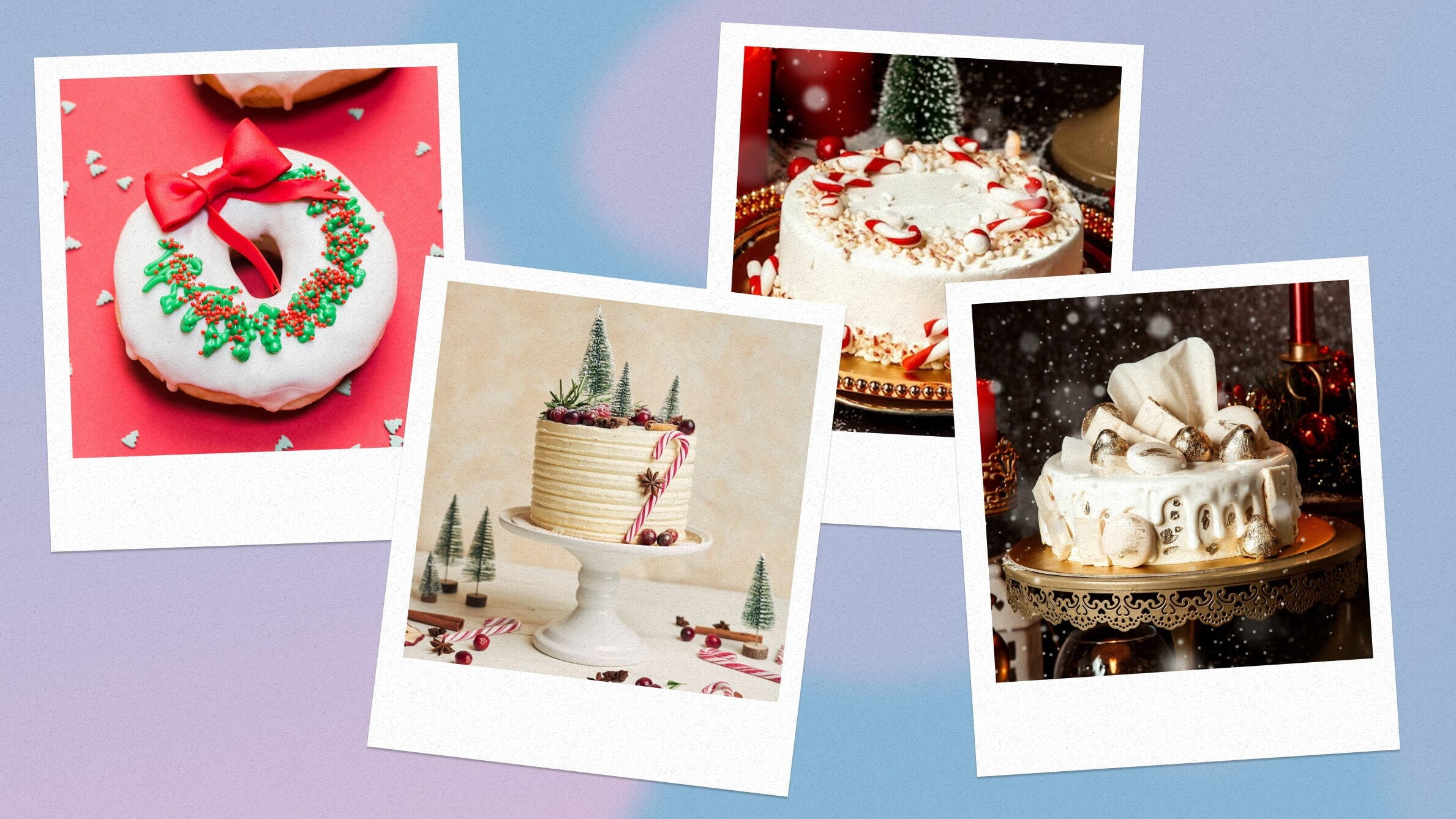
When it comes to adorning a Christmas cake, the opportunities are boundless. Some popular suggestions involve employing traditional Christmas hues like red, green, and gold for both icing and edible embellishments. Alternatively, you can craft a wintry spectacle featuring trees dusted with snow, a miniature snowman, and perhaps even a tiny Santa Claus. Another choice is to include festive patterns such as holly leaves and berries, candy canes, or gingerbread figures.
For a contemporary touch, experimenting with metallic edible paints or glitter can infuse your cake with a captivating shimmer. Regardless of your preferred style, the essential element is to enjoy the process and allow your creativity to flourish when decorating your Christmas cake.
Suggestions for Preserving Your Christmas Cake
Always let your dessert cool down completely as it lets the extra moisture evaporate. It’s a great idea to tightly wrap the cake with parchment or wax paper, as well as aluminium foil, especially if you are going to place it in the freezer. Finally, put the wrapped dessert in a resealable plastic bag or an airtight container, and it’s ready to stay in your freezer for approximately three months without losing its flavour or texture. Before enjoying it, simply let the cake thaw in its wrapping at room temperature for a few hours.
For shorter storage periods, place your dessert in a cool, dry place like a pantry or cupboard. By following these simple steps, your Christmas cake will be a delight for you and your loved ones for weeks or even months to come.

